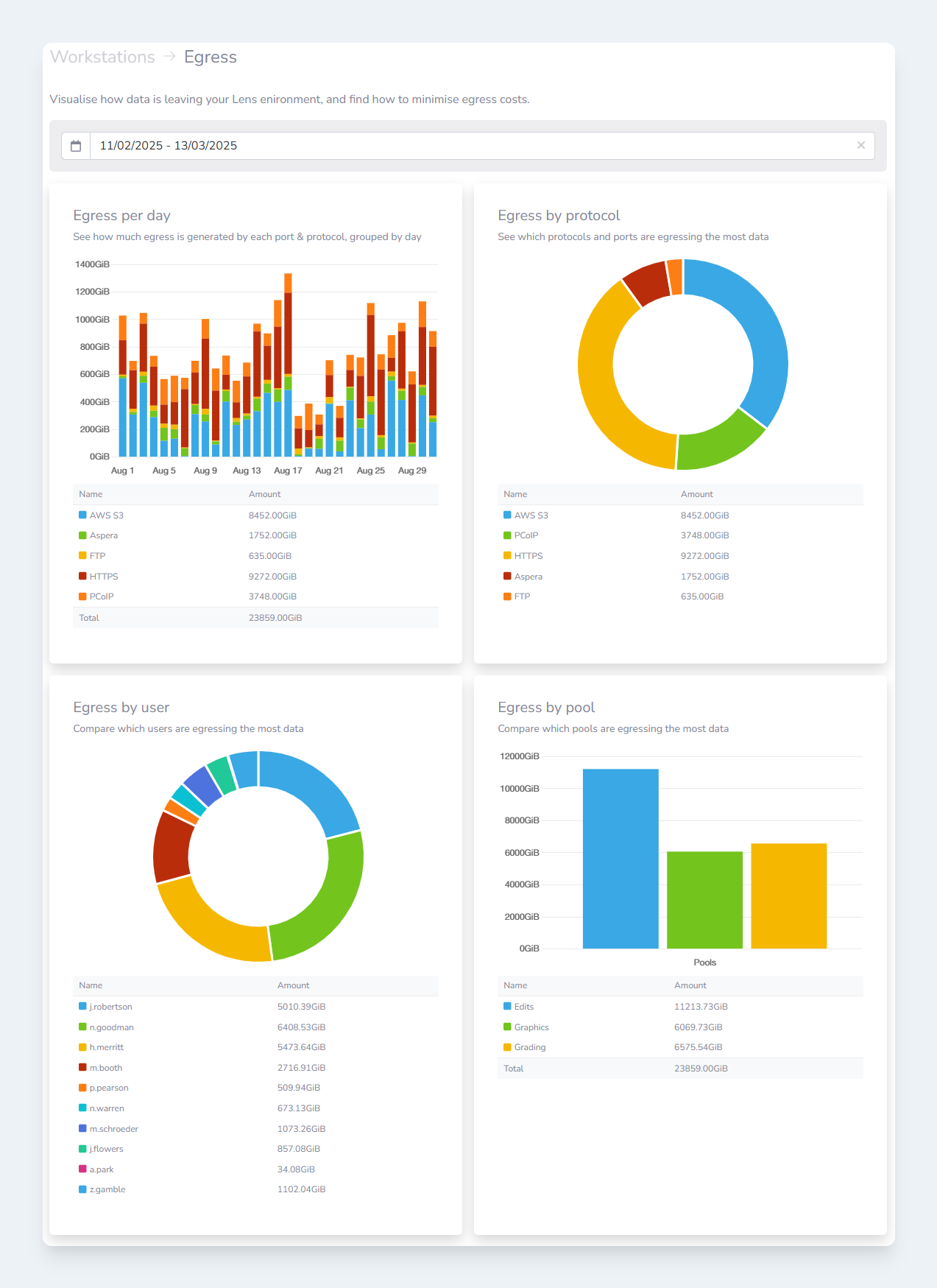Egress is a term used to describe data leaving a network or resource. In public cloud environments, egress is often charged based on usage. To help administrators keep track of these hidden, variable costs, the Lens system can monitor the data leaving workstations and provide accounting data to identify issues.
The Lens system handles this by monitoring network traffic leaving workstations. To respect the user’s privacy, only packet headers are inspected. The data payload is not captured. Lens uses the packet metadata to calculate which network the data was travelling to and from.
Egress monitoring is an opt-in feature, and Administrators need to ensure users have been notified that network traffic is being monitored.

Egress page
Widgets
Egress per day
This widget shows how much data has been ‘egressed’ per day, and which protocols were responsible. Where possible, Lens will attempt to resolve which protocol was used. Where this is not possible, port numbers will be shown instead.
Egress by protocol
The doughnut graph shows a summary of which protocols have egressed the most data over the defined time range. This time range can be changed by clicking the date/time selector and selecting a new range.
Where possible, Lens will attempt to resolve which protocol was used. Where this is not possible, port numbers will be shown instead.
Egress by user
The doughnut graph shows a summary of which users have egressed the most data over the defined time range. This time range can be changed by clicking the date/time selector and selecting a new range.
Egress by pool
The graph shows a summary of which pools have egressed the most data over the defined time range. This time range can be changed by clicking the date/time selector and selecting a new range.
Calculating the actual cost of egress is a complex process, that varies between companies and providers. This data can however be used for ‘bill-back’ between internal departments once the overall egress cost has been calculated by the provider.
